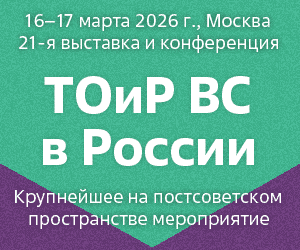On the Verge of Survival

 The year of 2009 became a turning point in development of the Russian business aviation market. Dramatic slowdown of the industry growth in combination with the limp policy of the aviation authorities put the Russian operators of business jets on the verge of survival. In his interview to Russia & CIS Observer Yevgeny Bakhtin, Vice President of the Russian United Business Aviation Association (RUBAA), has explained if there are preconditions for a qualitative change of the situation in 2010 or if stagnation in the industry will continue in the short term.
The year of 2009 became a turning point in development of the Russian business aviation market. Dramatic slowdown of the industry growth in combination with the limp policy of the aviation authorities put the Russian operators of business jets on the verge of survival. In his interview to Russia & CIS Observer Yevgeny Bakhtin, Vice President of the Russian United Business Aviation Association (RUBAA), has explained if there are preconditions for a qualitative change of the situation in 2010 or if stagnation in the industry will continue in the short term.
– How much did the quantity of the business aviation flights decrease in 2009 in comparison to the previous year and which effect did this have on the pricing?
– The overall decline of the business activity due to the global economic crisis resulted in general decrease of demand for business transportation services. Situation on the Russian business aviation market was growing sequentially worse throughout 2009. The quantity of the business aviation flights in Russia decreased by 35% in comparison to 2008, and bearing in mind the previous steady growth by 35-40% it was possible to count the annual losses of the domestic industry at about 65%. In 2009 the Russian business aviation was pushed back to the level of 2007. Appearance of additional capacity on the charter business aviation market on account of airplanes of private owners put into commercial operation resulted in rapid decrease in prices of business charters. Very often the offered prices hardly covered direct operating flight costs.
– Did the crisis have effect on balance of forces between Russian and foreign operators?
– The crisis had no effect on the structure of the Russian market where foreign operators performing up to 90% of all business aviation flights. High import duties and the VAT always put the Russian operators in a definitely disadvantageous position in comparison to foreign competitors and cut them off the modern aircraft. Complicated certification rules for business aviation operators and the need for numerous permits for every flight do not contribute to improvement of competitiveness of the Russian companies too. However, some measures taken by the Russian government had the most positive effect on the market. In the second half of 2009 alone, the fleet of business aircraft registered in Russia grew by 18 airplanes, which doubled the fleet registered in the last 15 years practically in three months. [Most of the Russian-owned aircraft remain registered outside the country. – ed.]
– How would you characterize the Russian market of pre-owned business jets?
– According to the RUBAA, about 300 aircraft of business class worth more than $5.5 billion were purchased by the Russians between 2005 and 2009. Although the statistical credibility of the sales data was very relative because of confidentiality of the deals, it is possible to say with assurance that up to 40% of the pre-owned business-class airplanes were offered for sale in 2009 and the average statistical exposure of these airplanes on the market reached almost 180 days because of the excessive offer. Despite the low prices of the pre-owned aircraft, the quantity of the real sale/purchase deals [in this period] did not exceed 15. The low demand on the market forced many owners to refuse from immediate sale of their airplanes because the costs of mothballing or maintenance of aircraft were noticeably lower than possible losses from its hasty sale. As a result, by the end of 2009 not less than a half of the business airplanes were removed from sale.
– How would you characterize prospects of the industry in 2010?
– The global financial recession will have negative effect on development of the Russian business aviation. But we shouldn’t forget that the needs for individual air transport services in Russia are so big that the economic crisis will hardly stop development of the business aviation, although one-year stagnation is more than possible. Surmounting of the temporary decline in business transportation and keeping on a fine break-even line will be critically important for Russian operators in the near future.
Ссылки по теме
- Для того, чтобы оставить комментарий, не привязанный к социальной сети, войдите или зарегистрируйтесь на нашем сайте.
CIS & Russian Aviation News And Insights
- S7 Airlines reports passenger dip but sees business class surge in 2025
- Aeroflot maintains traffic and market share in 2025
- Domestic strength offsets international slide in LCC Pobeda’s 2025 results
- Rossiya Airlines sees overall passenger growth in 2025, international traffic declines
- Foreign airlines poised for Russian domestic market access in 2026, says Transport Ministry
- Russia gains second major provider for CFM56 MRO services
- Belavia’s traffic rises 8.4% in 2025, still half-way from precrisis peak
- Russia’s passenger traffic declines for first time since sanctions hit
- Russified MC-21 to achieve target range by 2029 only









